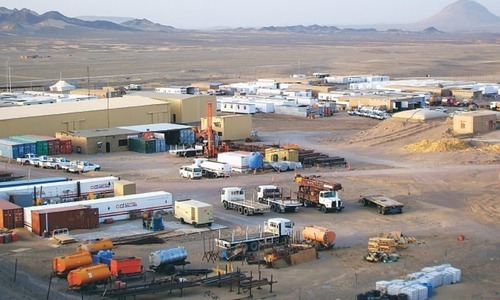Another setback awaits the country as an international arbitration court has ruled that the government engaged in an act of ‘expropriation’ against the assets of a foreign investor when the Supreme Court took action against Karkey Karadeniz, the Turkish firm that was contracted to set up a rental power plant by the previous government.
Reportedly, the damages that have been awarded by the court are around $700m; some reports say the amount is much higher while the government insists it is much lower without disclosing the actual figure. In fact, the attorney general’s office has gone out of its way to veil the adverse award in silence, giving its first pronouncement on it only when the matter was in the news.
Whatever the size of the award, it is fair to assume that it will be substantial. And this judgement is likely to be followed up by another, even larger, award in the Reko Diq case which is also winding its way through the arbitration process of the International Centre for the Settlement of Investment Disputes, the World Bank arm that gave the Karkey award.
It is still likely that Karkey will settle out of court rather than go through the arduous process of recovery. Nevertheless, the award should be a jolt to all those who seek to interfere in the country’s international commitments. For many years now, the global community has been tightening the protections that foreign investors can avail themselves of through arbitrary actions. Toying with the stakes acquired by foreign investors must be avoided.
Pakistan’s domestic politics is famously turbulent, and the first question any foreign investor asks is whether the present government will be in a position to deliver on the commitments it has entered into, and what is the likelihood that whoever comes into power next will try to reverse or otherwise alter the contractual terms governing long-term investments. Potential investors in the LNG sector, to take one example, are asking themselves exactly these questions as they consider entering into a long-term supply contract with Pakistan.
The political parties need to come to an understanding that they will keep foreign investors out of their own disputes. More importantly, the judicial community needs to understand that tampering with the understandings underpinning long-term foreign investments in the country carries enormous risks and costs, and can backfire resulting in a severely detrimental impact on the country.
One cannot emphasise enough the importance of treating investments, whether foreign or domestic, with due care, both at the time of signing and when delivering on the deal. There must be a limit to how far people are willing to go to settle scores arising from domestic politics. Otherwise, the country stands to pay a huge price, and nobody wins.
Published in Dawn, September 23rd, 2017













































